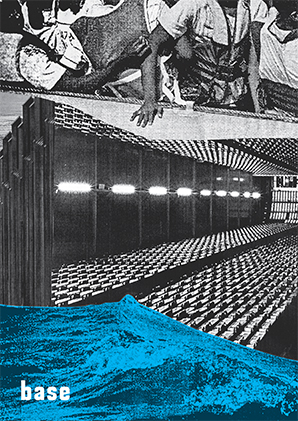“What Powell says today, the Tories say tomorrow and Labour legislates on the day after.” Sivanandan
Set against the deepening context of global mass migration, increasingly precipitated by the final climate crisis our species is likely to experience, the British state steadily continues to reconfigure itself around racial lines. The implications of Brexit continue to make survival – for migrants and citizens racialised in certain ways – increasingly unachievable on this island, where in the “national interest” the state makes border guards of teachers, nurses and landlords. At street level, the gendered violence of the property-form continues to express itself, the dispossessions of the housing crisis forming an alliance between domestic and state violence through a mass denial of access to safe and secure shelter and other means of reproduction.
The attempt to use teachers to catalogue children’s nationalities has been met with a coordinated response (see @Schools_ABC for more information). People continue to resist violent immigration raids (an impression of this can be found at @AntiRaids). Groups like Housing Action Southwark and Lambeth and North East London Migrant Action continue to fight to make local councils accountable for the routine gatekeeping that keeps people – often migrant women, often escaping domestic violence – from safe housing. These acts of mutual solidarity continue to deliver results, but they also extend outwards to other collectivities of care and support – often invisible, precarious and utterly essential. A sharp focus towards the state’s management of surplus populations reveals this terrain as the de facto battleground of contemporary social movements.
There has never existed a modern capitalist state that does not define its subjects according to the priorities of capital accumulation. Those “who count” are nationally defined, politically mediated and legislated for – constituted as ‘subjects’ and ‘citizens’ – for in all and every instance the state prioritises its survival as a competitor in the world market.

Classifications of legal and illegal, productive and unproductive are insidiously negotiated. In the early sixties those from Commonwealth nations required government-issued employment vouchers in order to settle in the UK and a few years later, once the Labour-led 1968 Commonwealth Immigrants Act passed, they then had to prove that a parent or grandparent was born in the UK in order to claim the right to reside. Unsurprisingly, this impacted black and brown bodies more than it did white Australians. After the initial postwar influx of migrant labour was sufficient for the needs of capital, politicians and the vast majority of the white population became more preoccupied with “race relations”. While the context differs broadly across time, there is a continuation of a trend in the state’s willful composition and geographic ordering of its subjects.
The state, historically conceived, has been nonetheless elided by the British labour movement (and the broader left in general) orientating now around Corbyn and McDonnell. And worse, pragmatically accepted as the price of emancipation from Tory rule. What this moralistic ultimatum concedes is an inability to reason with what it truly means to win over the state; to police and manage a new acceleration of capital accumulation.
There has followed a tendency, in some left factions associated with this movement, to “think like a state”, as if it were not a political form adequate to capitalist social relations, but a big control station, merely awaiting the righteous and reasonable to finally assert good governance. This flair for utopian consolidations of state power reflects a massive disconnect between the British left parliamentary movement and the social context of really existing struggles. And here, where no suggestive example of ‘just’ state rule can be advanced, we are left with a peculiar alliance of speculative fiction and Keynesian nostalgia.
The current moment will be defined by struggles against far right racism enacted through the state but working symbiotically with media and street-level variants. If there is any such thing as a “left” that exists beyond a thousand conferences, think-pieces, figureheads and fictions of social movements, it needs to find ways to make itself useful against this onslaught.
Parliamentary social movements, organised around the citizen-subject, are form-determined to pursue the goals and rhetoric of statecraft and sovereignty which, by the nature of their political composition, are found wanting when it comes to showing solidarity with struggles facing up to the state. The new grandees of a state-in-waiting, who declare themselves connected to activities and experiences they at best ignore and at worst actively quell, increasingly find themselves at odds with the resistance manifesting itself through day-to-day survival.
It is in proximity to struggle that a voice estranged from the sensibility of the citizen/state promises a more likely composition of political force. Take, as one stark example, the organising and mediation of a kind apart and aside from the parliamentary front in the work of Mediterranean search and rescue operations; voices that cannot be sidelined, political innovations and messages that cannot be ignored:
‘“Stay home and be bombarded or come here and we’ll lock you on a prison island” #Europe’s message to those forced from home in 2016’ ~ 09:39am, 13 October 2016 @MSF_Sea
